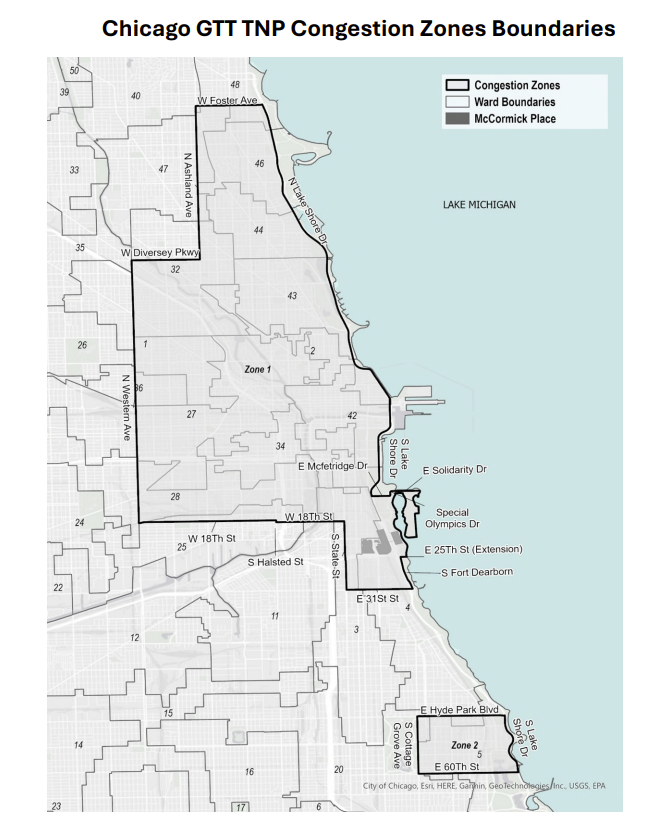UChicago fourth-years Ethan Ostrow and Harley Pomper filed a lawsuit in federal court on March 6 against Cook County Sheriff Tom Dart. The suit alleges that the sheriff violated the students’ First Amendment rights by retaliating after they criticized the Cook County Jail’s anti-paper policies.
Last year, Ostrow and Pomper were part of the Institute of Politics (IOP)’s Bridge program, in which students lead creative writing workshops for people incarcerated in the Cook County Jail. The lawsuit alleges that the sheriff, who oversees the county Department of Corrections, revoked their security clearances, preventing them from returning to the program this academic year after they wrote an op-ed in the Chicago Sun-Times criticizing the jail’s policy restricting the use of paper.
“The First Amendment forbids government officials from punishing people for their speech,” Brad Thomson, an attorney representing Ostrow and Pomper, said in a press release announcing the lawsuit. “Sheriff Dart had my clients banned from volunteering at the jail simply because he disagreed with their viewpoint. Sheriff Dart’s actions are a flagrant violation of the Constitution, raising serious concerns about whether he is respecting the constitutional rights of the people he is incarcerating at Cook County Jail.”
Thomson did not respond to the Maroon’s request for comment.
Matt Walberg, Dart’s communications director, referred the Maroon to a statement the sheriff’s office gave to the Hyde Park Herald in January. The statement said that Ostrow and Pomper’s op-ed “amounted to recklessly misleading those in custody in a way that threatened safety in a clear effort to see their name in a paper instead of understanding a complicated issue.”
“While the Sheriff’s Office cannot comment further due to this pending litigation, we strongly deny the students’ allegations and look forward to a full presentation of the facts in court,” Walberg said.
Ostrow and Pomper planned to continue with Bridge this year, but in October, the IOP informed them that the jail had refused to approve their security clearances. The 10 other students in the workshop were cleared.
“This was a huge part of our lives and community and the highlight of our week in our time in college,” Pomper told the Maroon. “It’s work that we want to keep doing for the rest of our lives, and so this was a significant loss.”
In their op-ed, published last May, Ostrow and Pomper criticized what they described as the Department of Corrections’s move to “almost entirely ban” paper in the facility.
“While facilitating programming at the jail, we have witnessed the rich personal development of our friends on the inside and have seen how the ban has been devastating to their already strained access to legal support, educational programming and relationships with people on the outside,” they wrote.
In interviews with the Maroon, Ostrow and Pomper said that the restrictions on paper were impossible to ignore.
“This became the overriding topic of conversation,” Ostrow said. “Pretty much every workshop we’d spend nearly the entire time—particularly in division six of the jail—just talking about the paper ban and associated restrictions that the sheriff’s office had levied on people.”
Ostrow added that he and Pomper could see no logic behind the jail’s actions.
“People’s family photographs, Bibles, Qurans, whole collections of writing that they’ve done over the years would be arbitrarily confiscated,” he said. “To us, this smacked of an authoritarian environment that had no reason to crack down on these very personal items besides to just scare people and instill fear.”
A week after the Sun-Times published Ostrow and Pomper’s op-ed, Dart wrote a response in the newspaper, defending anti-paper policies as necessary to keep illicit drugs out of the jail and disputing many of the students’ claims about restrictions.
“[The jail is] facing a new threat: paper laced with deadly household chemicals that can be smuggled through the mail, visitors, volunteers, staff and even defense attorneys,” he wrote. “We are finding these dangerous drugs—powerful synthetic cannabinoids mixed with nail polish remover, rat poison or pesticides—sprayed and dried on children’s drawings, Bible pages, store-bought cards from sweethearts, legal files, and pictures of friends and loved ones.”
Dart denied implementing a wide-ranging ban on paper or arbitrarily enforcing rules, as Ostrow and Pomper had alleged, writing that the jail had “gone to great lengths to ensure this by implementing new screening protocols instead of ham-fistedly banning all paper,” and contradicted Ostrow and Pomper’s claim that most inmates were not allowed to touch their legal documents.
The sheriff also disputed Ostrow and Pomper’s characterization of “infrequent and uneven” opportunities for incarcerated people to access tablets in their op-ed, writing that “approximately 82 percent of defendants have access to tablets every day for numerous hours.”
Without naming Ostrow and Pomper, Dart accused opponents of the jail’s paper ban of “embark[ing] on an intentionally misleading disinformation campaign aimed at scaring the public into thinking the jail is banning books or withholding important legal documents from those in custody.”
Ostrow and Pomper said that the sheriff mischaracterized their intentions. “People were dying, and that was absolutely a serious concern,” Pomper said. “Our goal with the op-ed was never to underplay the severity of what was going on, but just to say that this policy that they had introduced had a whole host of consequences that we didn’t feel like they were properly taking into account.”
Ostrow and Pomper expressed disappointment with the IOP’s unwillingness to advocate on their behalf in the dispute. In an email they provided to the Maroon, Purvi Patel, the IOP’s director of civic and campus engagement, told them in mid-October that the students’ return to the program was “not [her] first priority” and declined to meet with them on the issue.
The IOP did not respond to multiple requests for comment.
Ostrow said that the People’s Law Office, the law office that represents the students, sent a letter to Dart asking him to attest that their security clearance cancellation was not on account of speech. Dart did not respond. However, in January, Dart’s office issued a statement to the Hyde Park Herald responding to the allegation, which was later sent to the Maroon.
“Our criminal justice system warrants scrutiny by the media, advocates, and the public,” the statement said. “But the jail cannot allow individuals access when they have previously demonstrated a clear intent to use that access to spread disinformation in a way that undermines the safety of staff and individuals in custody.”
The lawsuit cites Dart’s statement as evidence that Ostrow and Pomper “were denied security clearance based solely on their speech.”
Pomper said they still hope to return to the jail before the end of the academic year.
“The current goal of the lawsuit is for us to get back inside and for them to alter their decision regarding our clearance,” Pomper said. “Of course, we’re nearing the end of the year, so the step after that if they don’t immediately settle would be to file an emergency injunction, which would get us back in before the end of the year, and if this continues on, we would continue to sue for damages. But overall, our goal is really that the sheriff’s office will recognize that revoking access for speaking out is a form of retaliation—[it] is a First Amendment violation.”
Dart must respond to the lawsuit by April 17.
Editor’s note, April 16, 2024, 7:59 p.m.: An original version of this article incorrectly said the original deadline was April 15. The actual deadline was April 17. On April 16, Dart’s lawyer requested an extension until May 1 for responding to the lawsuit.
















Alum / Apr 19, 2024 at 1:23 pm
Good on these kids!